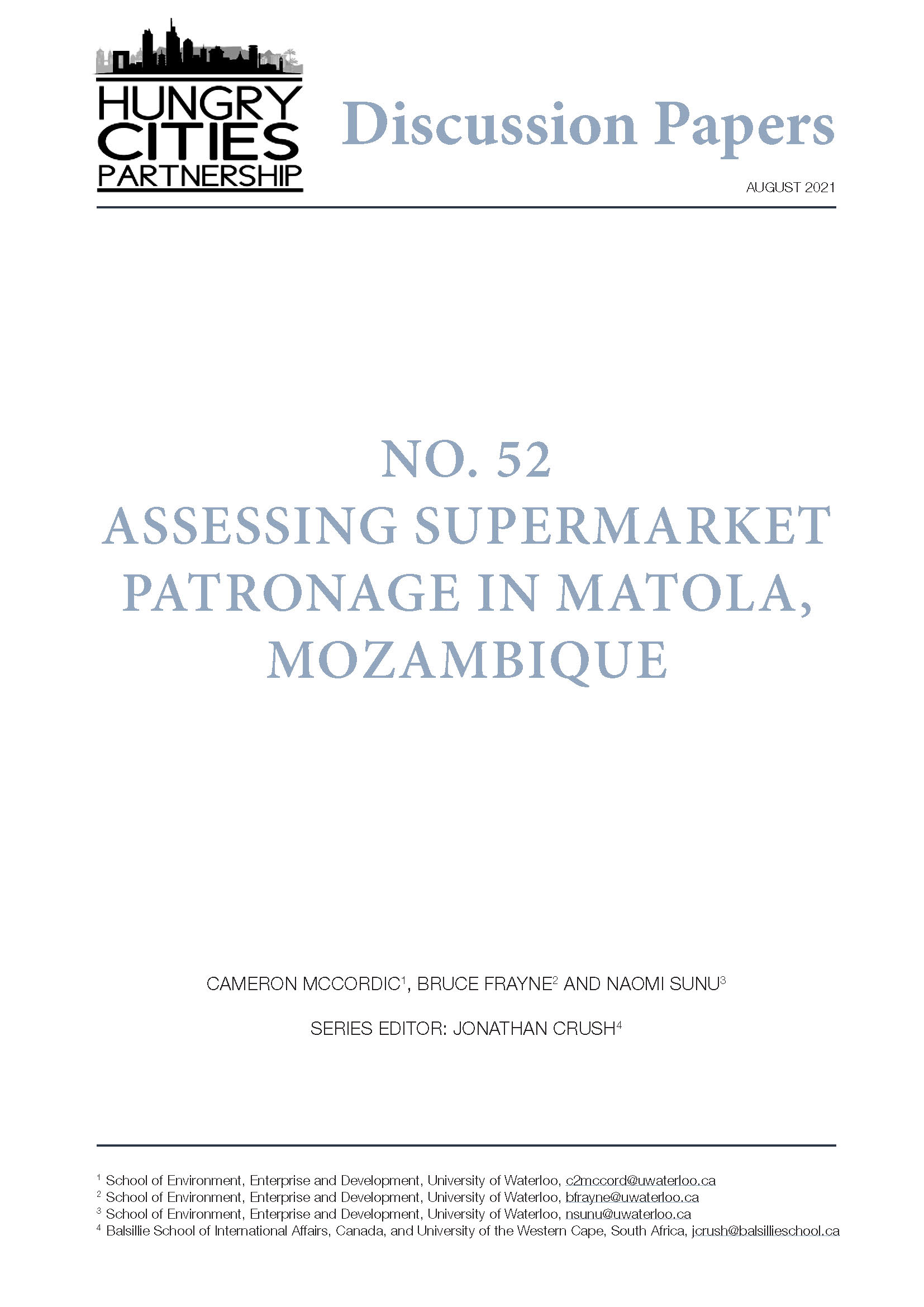As an indicator of a broader nutrition transition, the supermarketization of urban food systems in the Global South has become a growing area of research interest. While the rising dominance of supermarkets in urban food systems has been noted in several primate cities in the Global South, there have been few investigations into the spatial and demographic characteristics that may govern the patronage of supermarkets in smaller secondary cities. This paper assesses the supermarketization trend via an investigation of supermarket patronage in a secondary city through a 2014 household survey of Matola, Mozambique. Using a combination of descriptive statistics and decision-tree learning algorithms, the findings suggest a strong geographic pattern to supermarket patronage in Matola. Further analyses comparing frequent and infrequent supermarket patrons confirms the observation that spatial distance may be a more significant determinant of supermarket patronage than household wealth. The findings suggest that the spatial availability of supermarkets may play a greater role in defining the supermarketization of Matola’s food system than household entitlements. These findings also have implications for the evolving concept of urban food deserts in secondary cities, recognizing the role of spatial location in determining household access to supermarkets.

